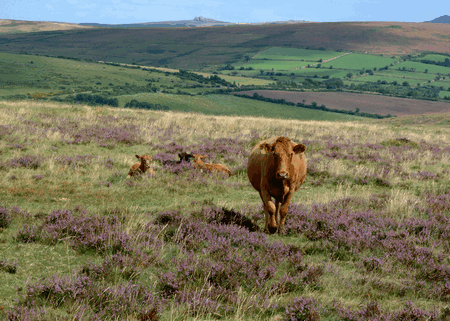South west hill farmers living on the edge

Hill farmers in the south-west of England face an uncertain future as Brussels prepares to make further cuts to their support payments as part of its CAP “health check”.
A new report by the University of Exeter, the Duchy College and Cumulus Consultants concludes that the viability of hill farming, already threatened by years of poor returns, may soon be made worse.
This in turn is threatening the future of some of the south-west’s most treasured landscapes.
“Hill farmers are rightly expected to deliver a wide range of ‘public goods’, to support wildlife for example, alongside their farming activities,” said Martin Turner of the University of Exeter, who led the research.
“However, our work has shown that their current financial position is already far from robust, and that the projected cut-back in public support over the next few years will further compromise the viability of some of these businesses.”
“Our research calls into question the longer-term future of traditional hill farming systems unless further targeted support can be found,” said Mr Turner.

Modulation of single farm payments is already taking a big slice off farmers’ single farm payments and the EU commission is planning on taking even more as it develops its CAP health check.
The report, which was commissioned by the Duchy of Cornwall and Dartmoor and Exmoor National Park Authorities, estimates the cuts will cause Farm Business Income on the average cattle or sheep hill farm to fall by a third by 2013.
“Many hill farmers are already getting less than the national minimum wage for their work and absolutely no return on their investment,” said the report. “With an average Farm Business Income of less than £10,000 many hill farms are simply not viable at the present time, even before the projected cut-back in public funding.”
The situation is predicted to be bleaker still for farms in ‘extreme’ locations, such as Devon’s high moorlands.
Exmoor National Park Authority chairman John Dyke commented: “South-west hill farmers have to farm in much more difficult circumstances than most of their lowland counterparts. Over many decades successive governments have recognised this by assisting our upland areas with a variety of special support mechanisms.
“These aids have been run down over the last three years and farming in the hills is rapidly becoming unviable.”
